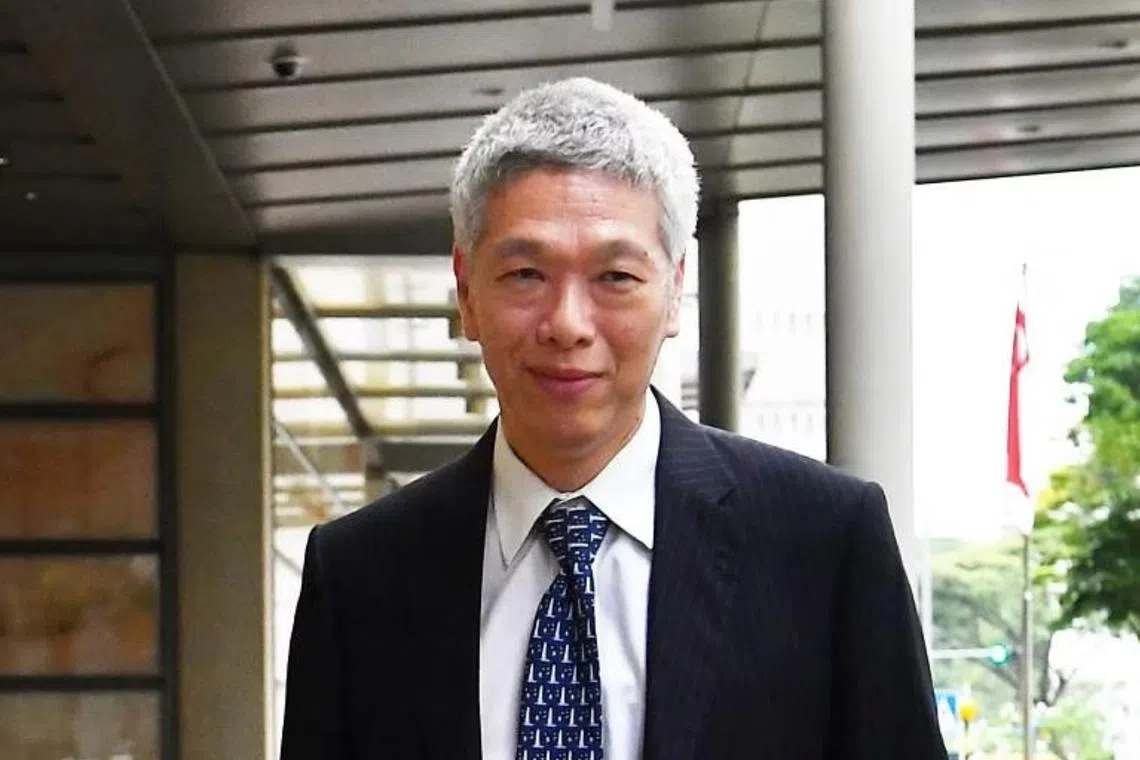‘I am a political refugee,’ Lee Hsien Yang says; reveals he sought asylum in 2022
Sign up now: Get ST's newsletters delivered to your inbox

Mr Lee Hsien Yang left Singapore on June 15, 2022, after the police asked him and his wife Lee Suet Fern to assist in investigations.
PHOTO: ST FILE
SINGAPORE – Mr Lee Hsien Yang, in a social media post on Oct 22, said he has become a political refugee from Singapore under the 1951 UN Refugee Convention.
He said: “I sought asylum protection in 2022. The Singapore Government’s attacks against me are in the public record. They prosecuted my son, brought disciplinary proceedings against my wife, and launched a bogus police investigation that has dragged on for years. On the basis of these facts, the UK has determined that I face a well-founded risk of persecution, and cannot safely return to Singapore.
“I sought asylum protection as a last resort. I remain a Singapore citizen and hope that some day it will become safe to return home.”
He added: “In 2017, my sister Wei Ling and I declared, ‘We do not trust Hsien Loong as a brother or as a leader’. We stated that we feared the abuse of the organs of the Singapore state against us and against my family. Because of that risk, I was unable to attend Wei Ling’s funeral.”
Mr Lee, the younger son of founding prime minister Lee Kuan Yew, did not clarify if he has been granted asylum, which will allow him to stay in Britain for a minimum of five years, and open the door for permanent settlement there after this period.
In response to queries from The Straits Times on whether Mr Lee had been granted asylum, the British High Commission in Singapore said: “It is longstanding UK government policy not to comment on questions regarding individuals and asylum matters.”
Mr Lee left Singapore on June 15, 2022, after the police asked him and his wife Lee Suet Fern to assist in investigations.
The pair have not returned since.
To apply for asylum in Britain, individuals must fear returning to their country of origin or nationality, according to a British government information booklet on asylum applications.
Applicants become refugees once they are granted asylum, it adds.
The document also says that to be recognised as a refugee under the 1951 United Nations Convention Relating to the Status of Refugees, one must have left one’s country and be unable to go back because of a well-founded fear of persecution based on one of five reasons.
These are: race, religion, nationality, political opinion and/or membership of a particular social group.
An applicant must also have failed to get protection from the authorities in his own country.
The issue of Mr Lee’s ability to return to Singapore re-emerged following the death and funeral of his older sister, Dr Lee Wei Ling, on Oct 9 at age 69,
Mr Lee had earlier said he would not be returning to Singapore for the wake and funeral, and that his son Li Huanwu would be helping with them.
On Oct 11 – in response to queries from the media – the police said in a statement that there are no legal restraints on Mr Lee and Mrs Lee returning to the Republic.
“They are and have always been free to return to Singapore,” they said.
Mr Lee has in the past hinted at a permanent departure from the country.
In 2023, Mr Lee said in a Facebook post that he may never return to Singapore
The police statement added that they had asked the younger Mr Lee and Mrs Lee to assist in investigations in June 2022 by attending an interview.
It said: “They had initially agreed but in the end did not turn up for the scheduled interview, left Singapore on June 15, 2022, and have not returned since.”
Among the differences was a demolition clause – relating to the demolition of the 38 Oxley Road house
This clause became a sticking point among the late Mr Lee Kuan Yew’s children.
In 2020, the Court of Three Judges and a disciplinary tribunal found that Mr Lee Hsien Yang and Mrs Lee Suet Fern had lied under oath during disciplinary proceedings against Mrs Lee, a lawyer, over her handling of the last will of Mr Lee Kuan Yew, who died on March 23, 2015, at the age of 91.
The police then became involved.
What does asylum status entail?
SMU’s Yong Pung How School of Law don Eugene Tan said asylum refers to the protection that a country grants to a non-citizen in its territory.
Where asylum is granted, the person is legally able to remain in the UK so long as he has that status and according to the laws of the UK, he said.
Mr Chenthil Kumarasingam, partner at Withers KhattarWong, said asylum status normally does not affect citizenship, although after getting the right to stay through being granted asylum, the individual may be able to apply for citizenship in the new country.
Mr Chenthil added that granting Mr Lee political asylum makes it very unlikely that the UK would extradite him to face prosecution in Singapore, if he were to face criminal proceedings.
He said: “Generally, the finding of the risk of political persecution makes it less likely that the host country will extradite an individual to their home country.
“Insofar as the UK has granted asylum on the basis of the threat of persecution (as has been reported), then extradition will not occur unless that finding is overturned or the risk is deemed to no longer exist.”
Asylum, however, does not expunge a person’s legal commitments or wrongs vis-a-vis the country they are from, said Prof Tan.
He said: “The Singapore authorities can still take legal action against a person who has been granted asylum in another country for offences committed.
“However, the real question is whether legal action can effectively be taken if the person is no longer in Singapore. Probably not.”



